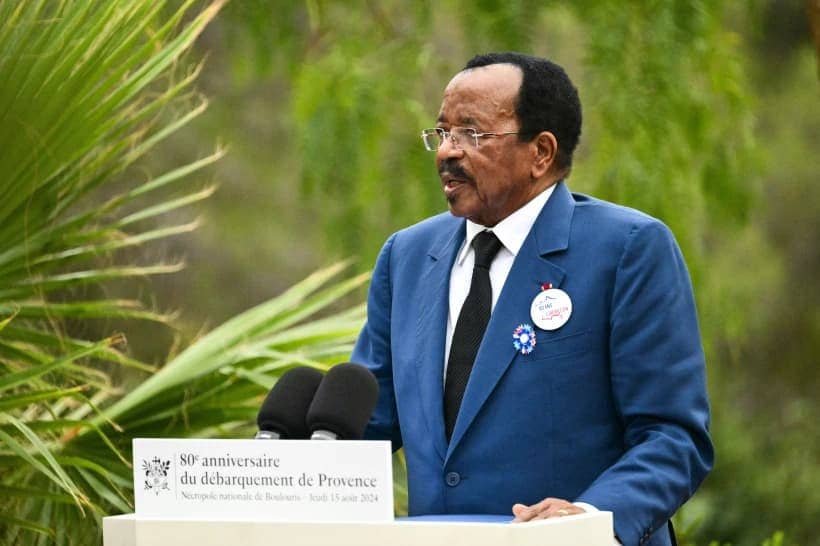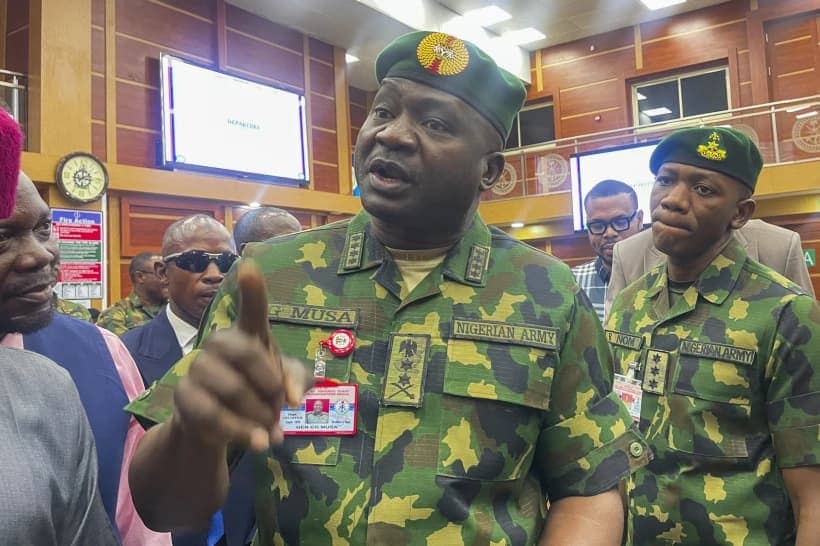SOUTH BEND – A close friend and ally of Nigerian Cardinal John Onaiyekan, an ecclesial giant on the African continent who’s now set to retire, says he’ll be remembered as a kind man with a heart for the poor, as well as a pastor who knew how to bridge religious and ethnic divides in a culture where such differences easily can turn deadly.
In an interview with Crux, Father Paulinus Odozor, a Nigerian moral theologian at Notre Dame and a longtime friend of Onaiyekan, said the cardinal has been “a unifying factor both in the Church in Nigeria and in Nigerian society at large.”
Odozor also spoke of the clerical sexual abuse crisis, saying that despite some voices in Africa dismissing the scandals as a largely Western issue, it’s recognized as a real problem in Nigeria even if cases may be handled somewhat differently.
As for Onaiyekan, Odozor said one of his greatest strengths over the quarter-century he’s led the capital city in Africa’s most populous nation is his ability to make friends.
“He has friends and connections with everybody, from Sokoto [in the far north of the country] to Bonny [in the far south]. From east to west, he knows people who respect and admire him. Whenever he’s around, they treat him like one of the family. That’s very rare.”
Odozor recalled the global firestorm created by a Danish newspaper in 2005 when it published a series of satirical editorial cartoons about Mohammed, the founder of Islam, leading to the slaughter of hundreds of people throughout the world, including an estimated 200 casualties in Nigeria.
According to Odozor, without Onaiyekan things could have been much worse. As things began to heat up, he said, “Nigerian Muslims were getting restive,” at a time when Odozor was in Abuja visiting his old friend.
“For some reason, the Ambassador of Israel felt he needed to speak with Onaiyekan, so he tracked him down. The ambassador came, and they were talking and talking.” Shortly after, he said, the Palestinian Liberation Organization representative in Nigeria also paid the cardinal a visit.
Following those visits, Onaiyekan phoned the Sultan of Sokoto, the supreme spiritual leader of Muslims in Nigeria, and the two issued a joint statement insisting the fiasco was not a Muslim-Christian issue, but rather “just some silly person doing some silly thing,” Odozor said, adding that this statement “calmed the country down.”
“Whenever there have been conflicts, people would want him to say something, do something as if once he talked everything would calm down, as if he had a magic wand,” Odozor said, noting that it “often worked.”
Now 75, Onaiyekan was born in 1944 in Nigeria’s Kogi State into an ethnically Yoruba family. In 1980 Pope John Paul II made him a member of the International Theological Commission, the main advisory body to the Vatican’s Congregation for the Doctrine of the Faith. He was named Bishop of Ilorin in western Nigeria and then Coadjutor Bishop of Abuja in 1990. Four years later he became the capital city’s first archbishop when it became an archdiocese, and he became a cardinal under Pope Benedict XVI in 2012.
On March 11, Pope Francis appointed Archbishop Ignatius Kaigama, previously of Jos, as Coadjutor Archbishop of Abuja, meaning he’ll eventually take over from Onaiyekan. Though no timetable has been announced, observers expect the transition probably will take place by the end of the year.
Odozor praised Onaiyekan not only for the bridges he built on both a religious and political level, but as a kind man attentive to the poor and to his parishes.
Pointing to Onaiyekan’s successor, Odozor called Kaigama a “seasoned pastor” who will bring vast experience especially in interreligious dialogue, as he worked closely in growing not only Catholic-Muslim relations during his time in Jos, but also relations among different ethnicities.
“He is someone who has experience in these matters and everybody expects that he will bring that experience to the national stage,” he said, adding that “we have high hopes that the Abuja diocese, basically the center of the Nigerian Church, is in good hands. Younger hands, but good hands.”
One of the issues Kaigama will almost certainly be forced to address is the global clerical abuse crisis.
In Nigeria, the overall attitude toward the scandals “is basically one of horror,” Odozor said, adding that it’s “a very universally shared attitude.”
He said Nigerian bishops have already implemented directives on child protection.
“I can tell you that people are aware of this problem, and to the extent that they can, they are making sure that whoever had this problem is removed from ministry and secondly, that whoever has had tendencies to harm children or minors is not allowed into ministry,” Odozor said.
He added that most Nigerian prelates generally believe abuse is “a human problem” rather than a Western one.
“Sometimes people think that because Africans are not shouting on the rooftops about this that they are not worried that this is an issue or that they are not taking this seriously. That’s not the case,” Odozor said, adding that he personally knows bishops who have faced cases and dealt with them “swiftly.”
Yet, he said, approaches to handling the problem might differ, with some engaging in a more public process and others preferring a “quiet” process of dismissing a priest from the clerical state. He said he’s aware of one or two recent cases of this sort of laicization in Nigeria.
However, Odozor stressed that no matter what precautions are taken, “there can never be a 100 percent foolproof safeguard.”
“Everybody, including people in Nigeria I know, think that even one case of this anywhere is one case too many,” he said.















